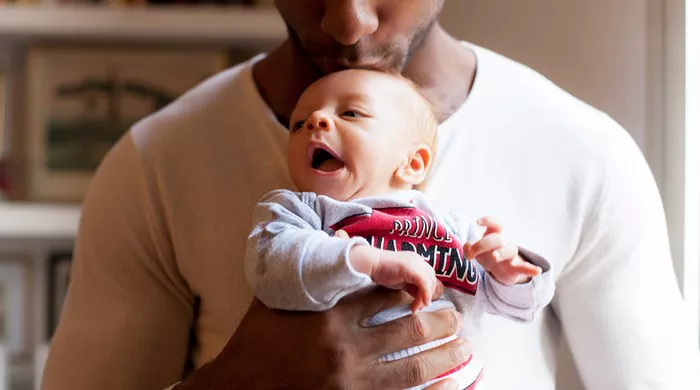Feeding a newborn can be a joyful yet challenging experience for parents. One common concern among parents is whether it is safe to feed a newborn who has hiccups. Hiccups in infants are quite common and usually harmless. However, understanding how to manage feeding during these episodes can help ease parental worries. In this article, we will explore the causes of hiccups in newborns, whether you can feed a newborn with hiccups, and tips for feeding them safely.
Understanding Newborn Hiccups
Hiccups are involuntary contractions of the diaphragm, the muscle that helps us breathe. When the diaphragm contracts, it causes a sudden intake of air, which then leads to a closure of the vocal cords. This closure creates the “hic” sound that we recognize as hiccups. Hiccups can occur in newborns for several reasons.
Common Causes of Hiccups
Overfeeding: If a baby consumes more milk than their stomach can hold, it can lead to hiccups. This is often seen during feeding when a baby gulps down milk quickly.
Swallowing Air: Babies can swallow air while feeding, especially if they are bottle-fed. This air can lead to hiccups as the diaphragm tries to push it out.
Excitement or Overstimulation: Newborns can get hiccups after being excited or overstimulated. This can happen during playtime or after a sudden change in their environment.
Gastroesophageal Reflux (GER): Some babies may experience reflux, where milk comes back up from the stomach. This can irritate the diaphragm and trigger hiccups.
Are Hiccups Harmful?
In most cases, hiccups in newborns are not harmful. They are usually temporary and resolve on their own. Hiccups can last for a few minutes to several hours, but they typically do not indicate any underlying health problems. However, if a baby experiences frequent or prolonged hiccups, it may be worth consulting a pediatrician.
Feeding a Newborn with Hiccups
Now that we understand hiccups better, the next question is whether you can feed a newborn with hiccups. The answer is yes, but with some considerations.
1. Evaluate the Severity of Hiccups
Before feeding, assess the severity of the hiccups. If the hiccups are mild and your baby seems calm and hungry, it is generally safe to proceed with feeding. However, if the hiccups are persistent and your baby appears distressed, it may be best to wait a few minutes until they settle down.
2. Feeding Position Matters
When feeding a baby with hiccups, the feeding position can make a difference. Holding your baby in a more upright position can help reduce the chances of swallowing air and minimize the likelihood of hiccups.
3. Slow and Steady
If you decide to feed your newborn during a hiccup episode, go slow. Offer small amounts of milk at a time. This allows your baby to swallow without gulping air, which can worsen hiccups.
4. Burp Breaks
Incorporating burp breaks during feeding can help relieve hiccups. Burping your baby after every few ounces can release trapped air in the stomach. This can ease discomfort and reduce the frequency of hiccups.
5. Monitor Baby’s Cues
Pay attention to your baby’s cues during feeding. If your baby seems uncomfortable or starts crying, it may be best to stop feeding and try again later. Sometimes, taking a short break can help alleviate hiccups.
Tips for Managing Hiccups During Feeding
Here are some additional tips for managing hiccups while feeding your newborn:
1. Use the Right Bottle and Nipple
If you are bottle-feeding, choose a bottle with a slow-flow nipple. This can help regulate the flow of milk and reduce the chances of your baby swallowing too much air.
2. Keep Feeding Times Calm
Creating a calm feeding environment can help minimize hiccups. Avoid sudden movements, loud noises, or distractions during feeding. This can help your baby stay relaxed and focused on feeding.
3. Try Different Feeding Techniques
Experiment with different feeding techniques to see what works best for your baby. Some parents find that feeding their baby in a slightly inclined position or using a breast-like bottle helps reduce hiccups.
4. Stay Patient
Hiccups are often temporary and resolve on their own. If your baby has hiccups during feeding, try to remain patient and calm. Take a few deep breaths and remember that this is a common part of infancy.
5. Consult a Pediatrician if Needed
If your newborn frequently experiences hiccups or if you notice any concerning symptoms, consult a pediatrician. They can provide guidance and check for any underlying issues that may be contributing to the hiccups.
When to Seek Medical Advice
While hiccups are usually harmless, there are certain situations where you should seek medical advice:
Frequent or Prolonged Hiccups: If your baby has hiccups that last longer than usual or occur frequently throughout the day.
Associated Symptoms: If hiccups are accompanied by other symptoms, such as vomiting, irritability, or difficulty feeding.
Changes in Feeding Patterns: If you notice changes in your baby’s feeding habits, such as refusing to eat or becoming fussy during feeds.
See also: Are Hiccups Bad For Newborns
Conclusion
Feeding a newborn with hiccups is generally safe, but it requires a bit of caution and patience. Understanding the causes of hiccups and knowing how to manage feeding during these episodes can help ease concerns for parents.
By keeping feeding times calm, using appropriate techniques, and monitoring your baby’s cues, you can navigate hiccups more effectively. Remember that hiccups are usually harmless and a normal part of infancy. However, if you have concerns or notice any unusual patterns, don’t hesitate to consult your pediatrician for guidance.
With a little understanding and care, you can ensure that your feeding experiences remain positive and enjoyable, hiccups and all.
Related topics:


